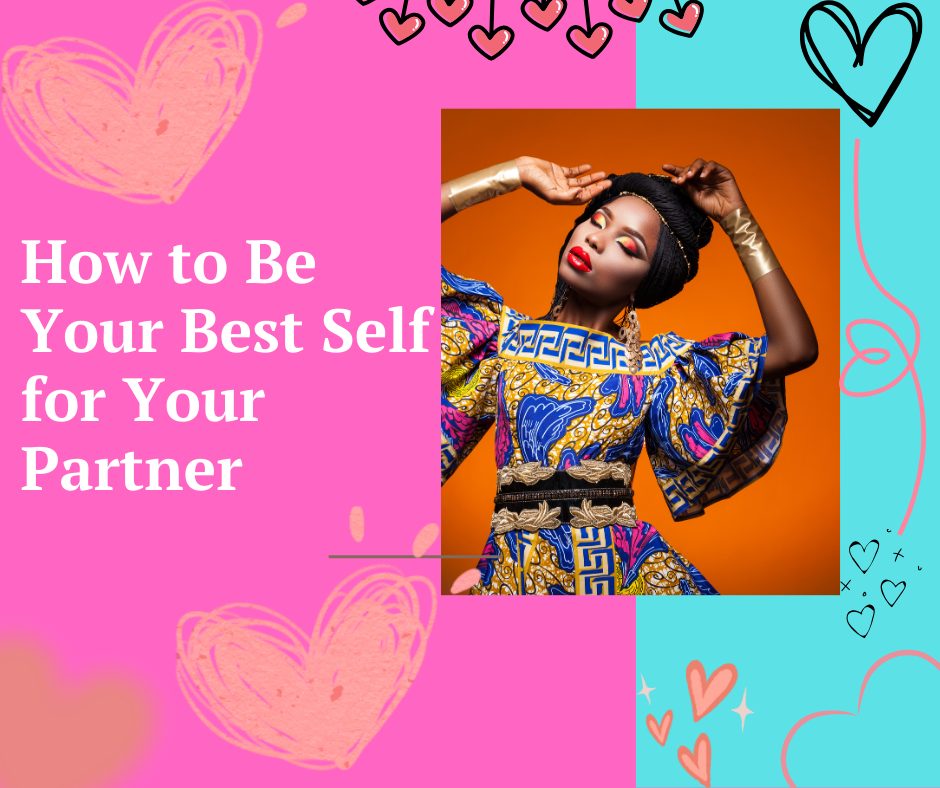1. Prioritize Self-Improvement
Personal growth benefits not just you but also your relationship. When you continuously evolve, you bring more value to your partner and create a fulfilling bond.
How to Apply This:
Set personal goals for self-improvement.
Keep learning—whether it’s new skills, knowledge, or perspectives.
Strive to be better than yesterday, not perfect.
2. Maintain Emotional Stability
A strong relationship requires emotional balance. When you manage your emotions well, conflicts are handled maturely, and your partner feels secure with you.
How to Apply This:
Practice self-awareness—understand your triggers and reactions.
Learn to manage stress in healthy ways.
Avoid taking out frustrations on your partner.
3. Communicate Openly and Honestly
Good communication is the foundation of any successful relationship. Being your best self means expressing your feelings, listening actively, and being open to feedback.
How to Apply This:
Be clear and honest about your emotions and needs.
Listen to understand, not just to respond.
Avoid bottling up feelings—address issues before they escalate.
4. Take Responsibility for Your Actions
Owning up to mistakes and making an effort to change shows maturity and respect for your partner. No one is perfect, but taking accountability strengthens trust.
How to Apply This:
Apologize sincerely when necessary.
Learn from past mistakes and grow from them.
Avoid blaming your partner—focus on solutions instead.
5. Support Your Partner’s Growth
A healthy relationship is a two-way street. Just as you strive to be your best, encourage your partner to do the same without pressure or judgment.
How to Apply This:
Be their biggest cheerleader—celebrate their achievements.
Offer constructive support without trying to control them.
Encourage them to pursue their passions and personal goals.
6. Show Love and Appreciation
Small gestures of love and appreciation go a long way in keeping the relationship strong. When you make your partner feel valued, your bond deepens.
How to Apply This:
Express gratitude regularly.
Surprise them with thoughtful acts of kindness.
Speak their love language—whether it’s words of affirmation, quality time, gifts, or physical touch.
7. Maintain Your Independence
A great partner is someone who is whole on their own. While togetherness is important, maintaining independence keeps the relationship exciting and balanced.
How to Apply This:
Keep up with your hobbies and interests.
Maintain friendships and social connections outside of the relationship.
Avoid losing your identity in the relationship.
8. Be Kind and Understanding
Patience and compassion are essential in any relationship. Being your best self means choosing kindness, even in tough moments.
How to Apply This:
Be empathetic—try to see things from their perspective.
Give them grace when they make mistakes.
Treat them with the same respect and care you expect.
9. Stay Physically and Mentally Healthy
Your health affects your relationship more than you realize. Taking care of yourself ensures you can show up fully for your partner.
How to Apply This:
Eat well, exercise, and get enough rest.
Take care of your mental well-being through mindfulness or therapy if needed.
Be aware of how your energy affects your relationship.
Final Thoughts
Being your best self for your partner doesn’t mean being perfect—it means striving to be a loving, supportive, and self-aware individual. When you work on personal growth, emotional balance, and communication, you create a stronger, healthier, and more fulfilling relationship.
